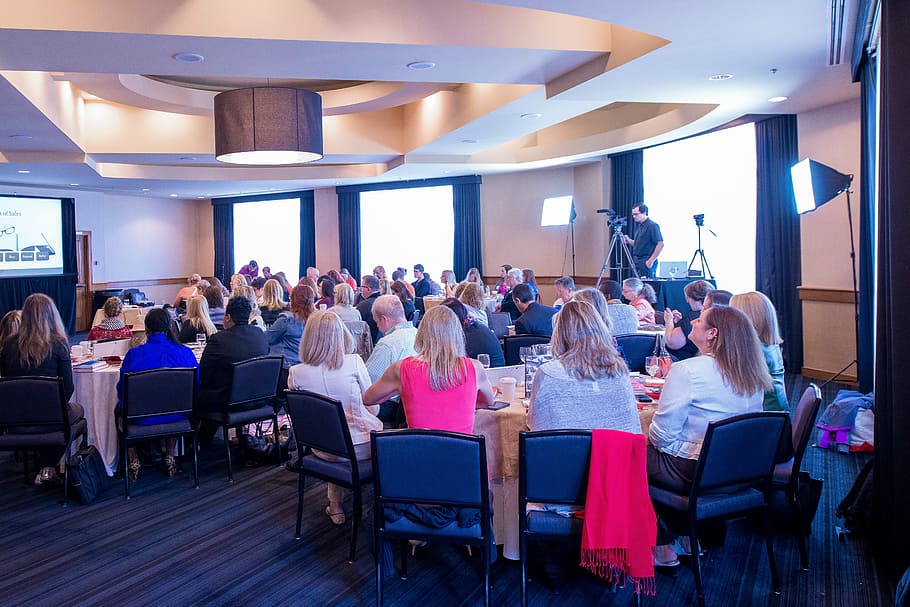Organizing a successful conference requires meticulous planning, attention to detail, and effective marketing strategies. In today’s competitive landscape, event organizers need to go beyond traditional methods to attract attendees and ensure the success of their conferences. In this blog post, we’ll discuss 10 conference marketing tips that can help event organizers maximize attendance, engagement, and overall impact.
- Define Your Target Audience: Before you start marketing your conference, it’s crucial to clearly define your target audience. Who are the people you want to attend your event? What are their interests, demographics, and pain points? Understanding your audience will enable you to tailor your marketing messages and strategies to resonate with them effectively.
- Develop Compelling Content: Content is king in the world of conference marketing. Create compelling content that highlights the value proposition of your conference and entices potential attendees to register. This could include blog posts, articles, videos, infographics, and social media posts that showcase the speakers, topics, and activities attendees can expect at your event.
- Leverage Social Media: Social media platforms are powerful tools for promoting conferences and engaging with your target audience. Create a social media marketing plan that includes regular posts, updates, and interactions across platforms like Facebook, Twitter, LinkedIn, and Instagram. Use relevant hashtags, tag speakers and sponsors, and encourage attendees to share their excitement about the event.
- Utilize Email Marketing: Email marketing remains one of the most effective channels for promoting conferences and driving registrations. Build an email list of potential attendees and send out regular updates, announcements, and reminders about your event. Personalize your emails, segment your audience, and include compelling calls-to-action to encourage recipients to take action.
- Partner with Influencers: Collaborating with influencers in your industry can significantly amplify your conference marketing efforts. Identify influencers who have a relevant audience and credibility in your niche, and reach out to them to explore partnership opportunities. This could include sponsored content, social media takeovers, or speaking engagements at your event.
- Offer Early Bird Discounts: Early bird discounts are a tried-and-tested strategy for incentivizing early registrations and boosting ticket sales. Offer discounted rates for attendees who register by a certain date, and promote these offers through your marketing channels. Highlight the savings and benefits of early registration to encourage attendees to take advantage of the opportunity.
- Implement Referral Programs: Word-of-mouth marketing is incredibly powerful, especially in the context of conferences. Implement a referral program that rewards attendees for referring their friends, colleagues, or networks to register for your event. Offer incentives such as discounts, exclusive access, or merchandise to encourage attendees to spread the word and increase your event’s reach.
- Create Engaging Multimedia Content: In addition to written content, leverage multimedia assets to engage your audience and generate excitement about your conference. Create teaser videos, behind-the-scenes footage, speaker interviews, and interactive content that showcases the unique aspects of your event. Share these multimedia assets across your website, social media channels, and email newsletters to capture the attention of potential attendees.
- Optimize Your Website for Conversions: Your conference website serves as a central hub for information and registration, so it’s essential to optimize it for conversions. Ensure that your website is user-friendly, mobile-responsive, and easy to navigate. Include clear calls-to-action, intuitive registration forms, and persuasive copy that communicates the value of attending your event. Test different elements of your website to identify areas for improvement and maximize conversions.
- Engage Attendees Before, During, and After the Event: Conference marketing doesn’t end once attendees register for your event. Keep them engaged before, during, and after the conference to maximize their experience and encourage repeat attendance in the future. Share pre-conference content, facilitate networking opportunities, and encourage attendees to share their insights and takeaways on social media using event-specific hashtags. Follow up with post-conference surveys, thank-you emails, and exclusive content to maintain momentum and foster a sense of community among attendees.
Conclusion:
Marketing a conference requires a strategic approach, creative thinking, and continuous engagement with your target audience. By implementing these 10 conference marketing tips, event organizers can effectively promote their events, attract attendees, and ensure a successful and memorable experience for everyone involved.


